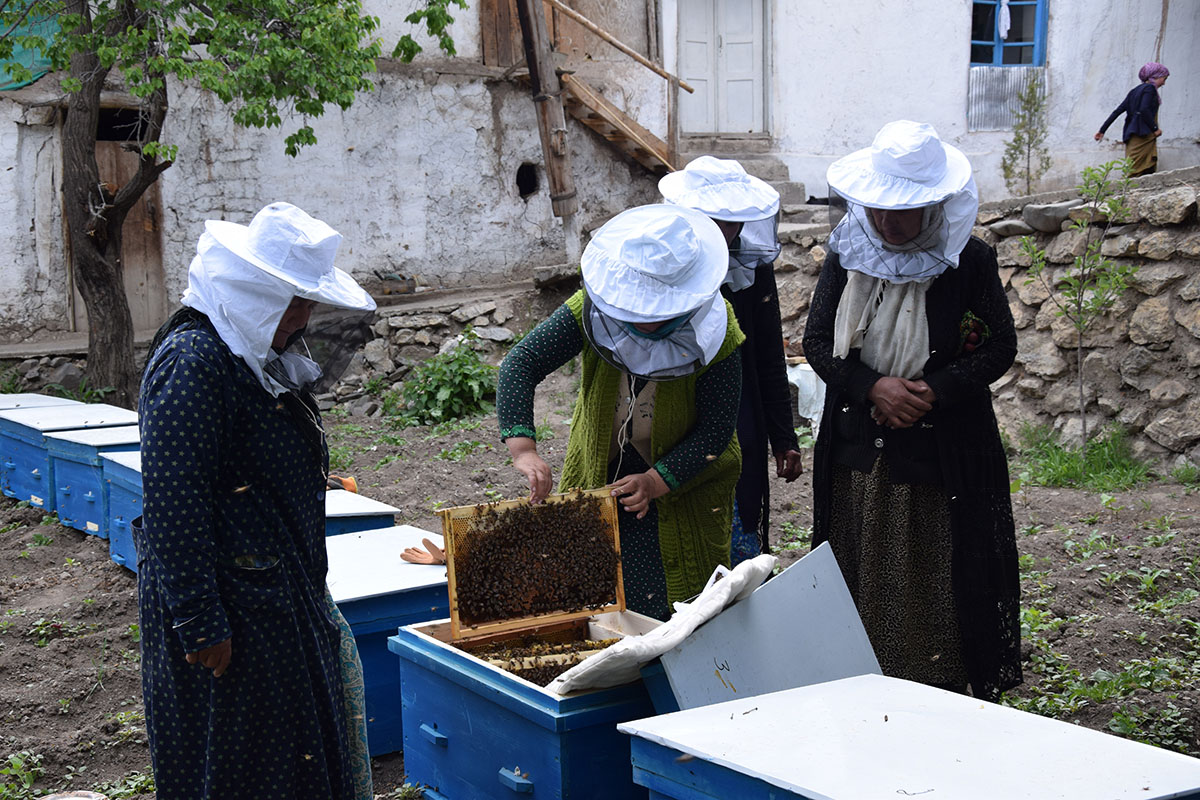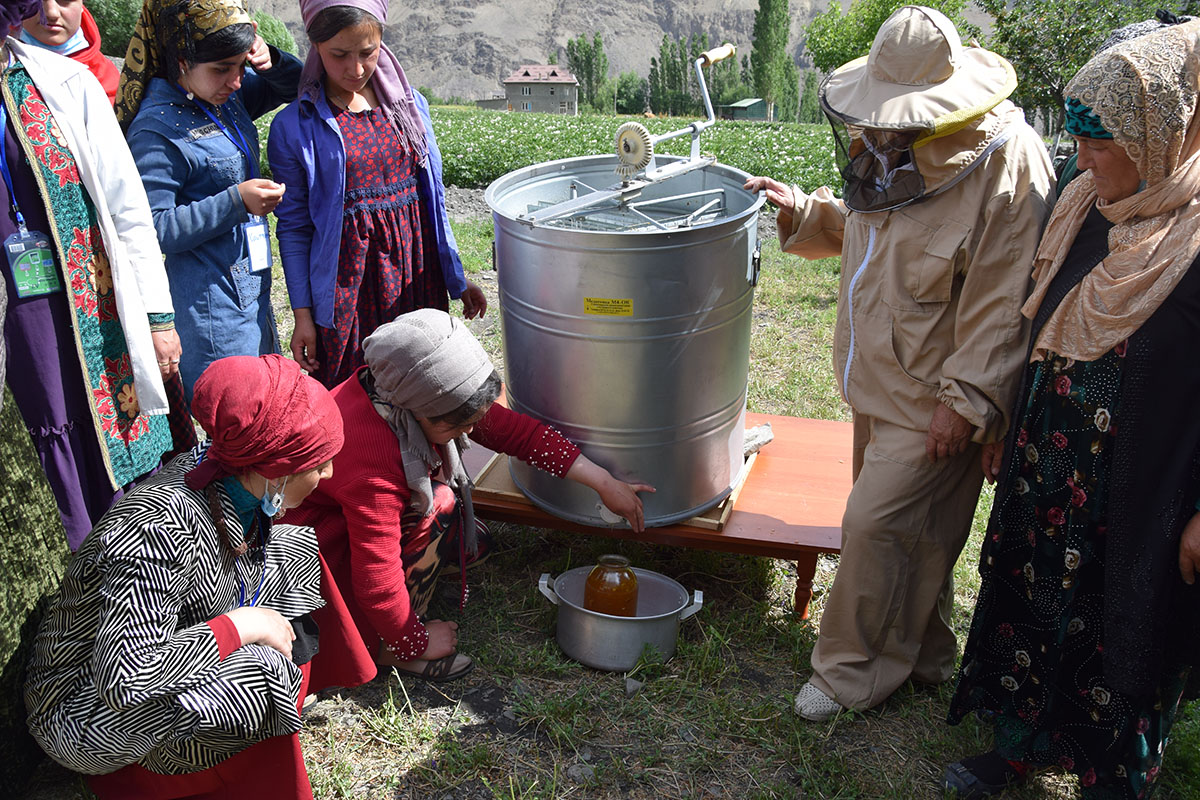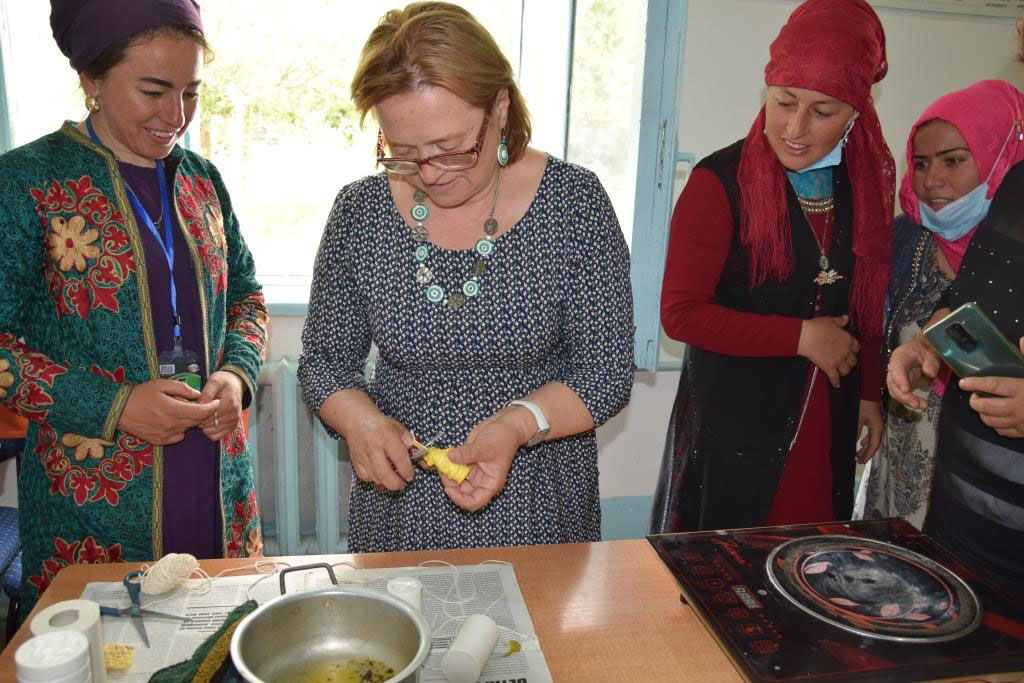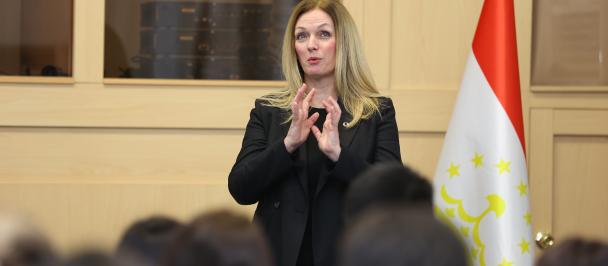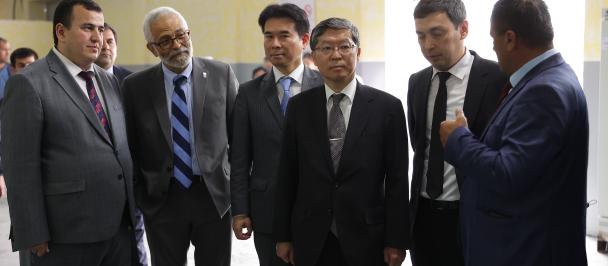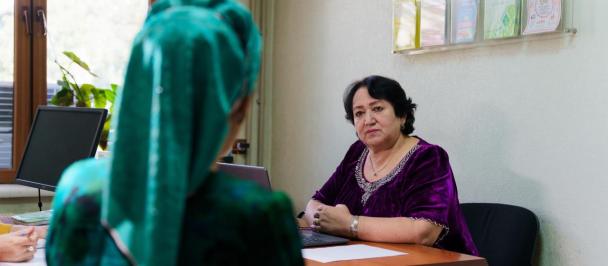UNDP | Women beekeepers taking care of the bee families
"This year, a mudflow destroyed our main irrigation canal during the vegetation period, which reduced the potato yield, our main source of income. We were lucky to have beehives, as we could sell honey, cover some losses, and feel more secure."
Porsoeva Zuhro is an older woman who has lived her life in Vodif village, Kuhistoni Mastchoh District of northwestern Tajikistan. The region experiences multiple climate-induced natural disasters like mudflows that destroy the livelihoods of many women like Porsoeva. However, she now benefits from beekeeping as an alternative livelihood option.
Climate Change is posing a severe threat to the well-being of rural women in Tajikistan. Agriculture is the main economic activity in the Kuhistoni Mastchoh and Aini districts of Zeravshan Valley, with potatoes and vegetables prevailing on arable lands. But due to changes in weather patterns, agriculture can no longer sustain women's livelihoods.
UNDP | Women beekeepers processing their first harvest
To overcome this situation, in 2019, the United Nations Development Programme (UNDP), with financial support from the Russian Federation, initiated a project with the government called "Building Climate Resilience in Agriculture and Water Sectors of Rural Tajikistan" focusing on alternative livelihood options like beekeeping for women to build their capacity in fighting climate change.
The project established seven women beekeeping groups and provided technical assistance to more than 35 women, including widows, spouses of migrant workers and other vulnerable women Kuhistoni Mastchoh and Aini districts.
Beekeeping is a viable activity in higher mountainous areas. Bees are highly adaptable to various conditions and are likely to remain productive under foreseen climate change scenarios for the region. This activity could provide a sustainable opportunity for women to diversify their livelihoods.
The project provided bee families as well as hives smokers to all the 35 women and provided them training through a local NGO on bee care and honey production. They also learned about other environmental issues from the training.
UNDP | Russian beekeeping experts give training to women beekeepers.
Now they are harvesting 100-200 kg honey each. By the end of the first season, the groups received more than 3000 kg of honey, and the average income each woman has got was around USD 400.
They are now more confident and scaling up their business. Rafoatmo Sharifova is one such lady from Madrushkat village of Kuhistoni Mastchoh district. She applied for a grant from the Governor of Sugd Region planning to increase her apiary and succeeded in winning USD 800 for purchasing five additional bee families. Women also participate in local and regional agricultural fairs promoting their products.
It is affirmative that by diversifying women's livelihoods, this project has provided them not only with additional income but also with a chance to develop resilience to shocks associated with climate change, gave them access to productive resources, increased meaningful public participation, and empowered them to determine their own futures.

 Locations
Locations